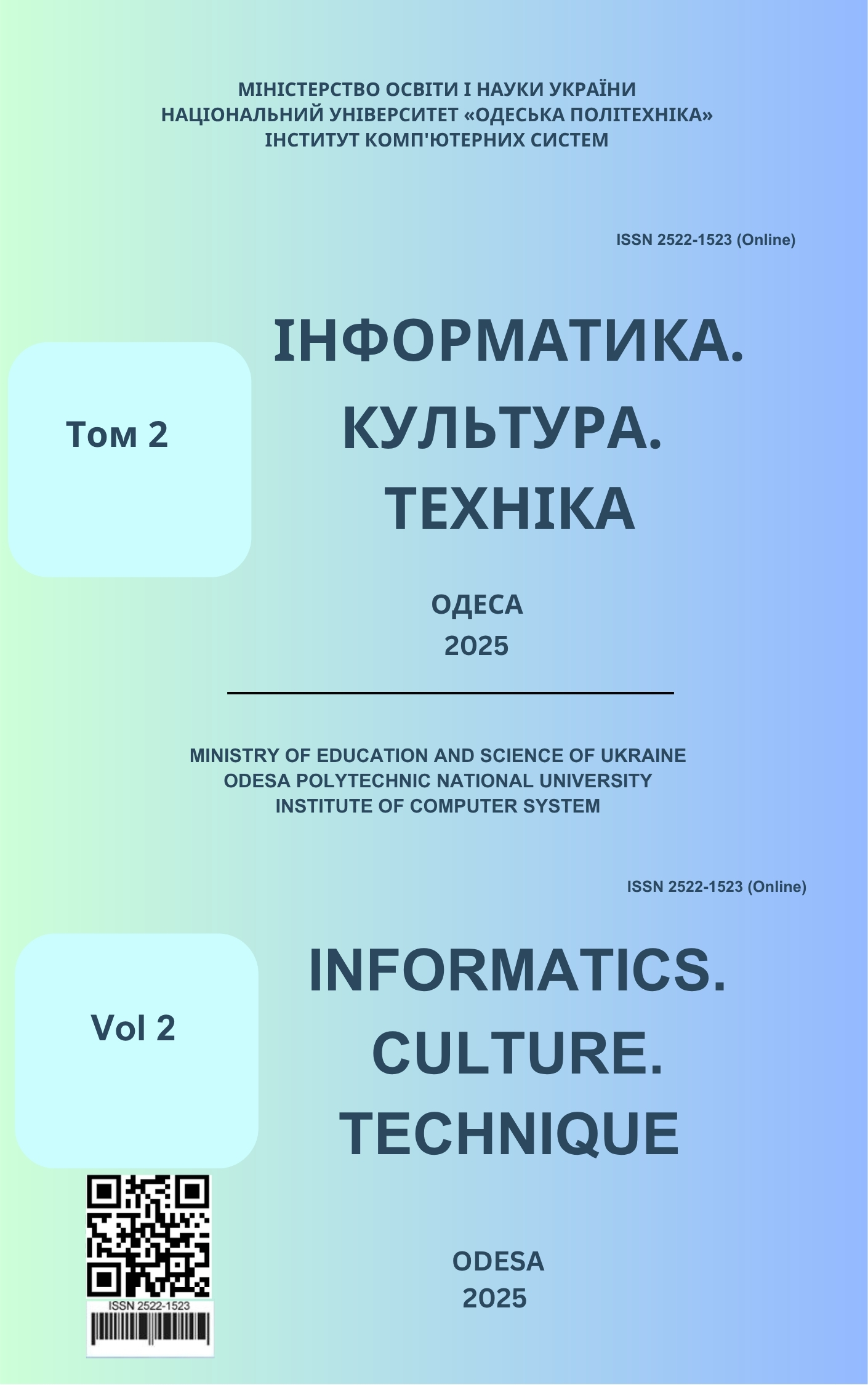Factors of trust in digital information among applicants for higher education institutions in the educational space
DOI:
https://doi.org/10.15276/ict.02.2025.62Keywords:
Information society, trust, digital information consumption habits, higher education students, critical thinking, emotional factors, social factors, technical factors, educational spaceAbstract
The article presents the results of a study of factors of trust in digital information among applicants for higher education institutions in the context of a modern information society. The growth of digital content, the spread of artificial intelligence and social networks exacerbate the problem of information security, create new challenges for critical thinking and require a rethinking of educational approaches The conditions of data overload, rapid content distribution and high dynamics of the digital environment form new habits of digital information consumption, where the problem of distinguishing between reliable and manipulative messages comes to the fore. It was established that the leading markers of reliability for young students are technical and formal factors: the presence of sources/references, the authority of the author and access to official resources. These are the signs that respondents consider the most convincing evidence of the truthfulness of information. At the same time, a significant role of emotional and social factors was revealed: the emotional coloring of messages and popularity indicators (number of views, likes, reposts) often affect the assessment of reliability even in the absence of verified sources. This indicates the ambivalence of information behavior of applicants: a combination of a high level of theoretical media literacy with a practical tendency to simplified decision-making mechanisms. Analysis by form of study showed that full-time applicants are more often oriented towards rational verification criteria and pay more attention to technical aspects (domain, presence of HTTPS, links to official resources). In contrast, part-time applicants are more inclined to trust emotional and social signals. Among both groups, the key barriers to systematic fact-checking are lack of time, information overload, and cognitive fatigue, rather than lack of knowledge or skills. The results allow us to form a generalized portrait of the modern young consumer of digital information: a «knowledgeable but tired» user who understands the principles of critical thinking well, but does not always apply them in everyday practice. This emphasizes the importance of integrating educational strategies and digital tools that would not only increase media literacy, but also help overcome the influence of emotional and social factors in the process of evaluating information. The results of further research can contribute to the development of integral programs for the formation of critical thinking, focused on the real practices of applicants of higher education institutions, which will increase their resistance to information manipulation in the digital environment.

